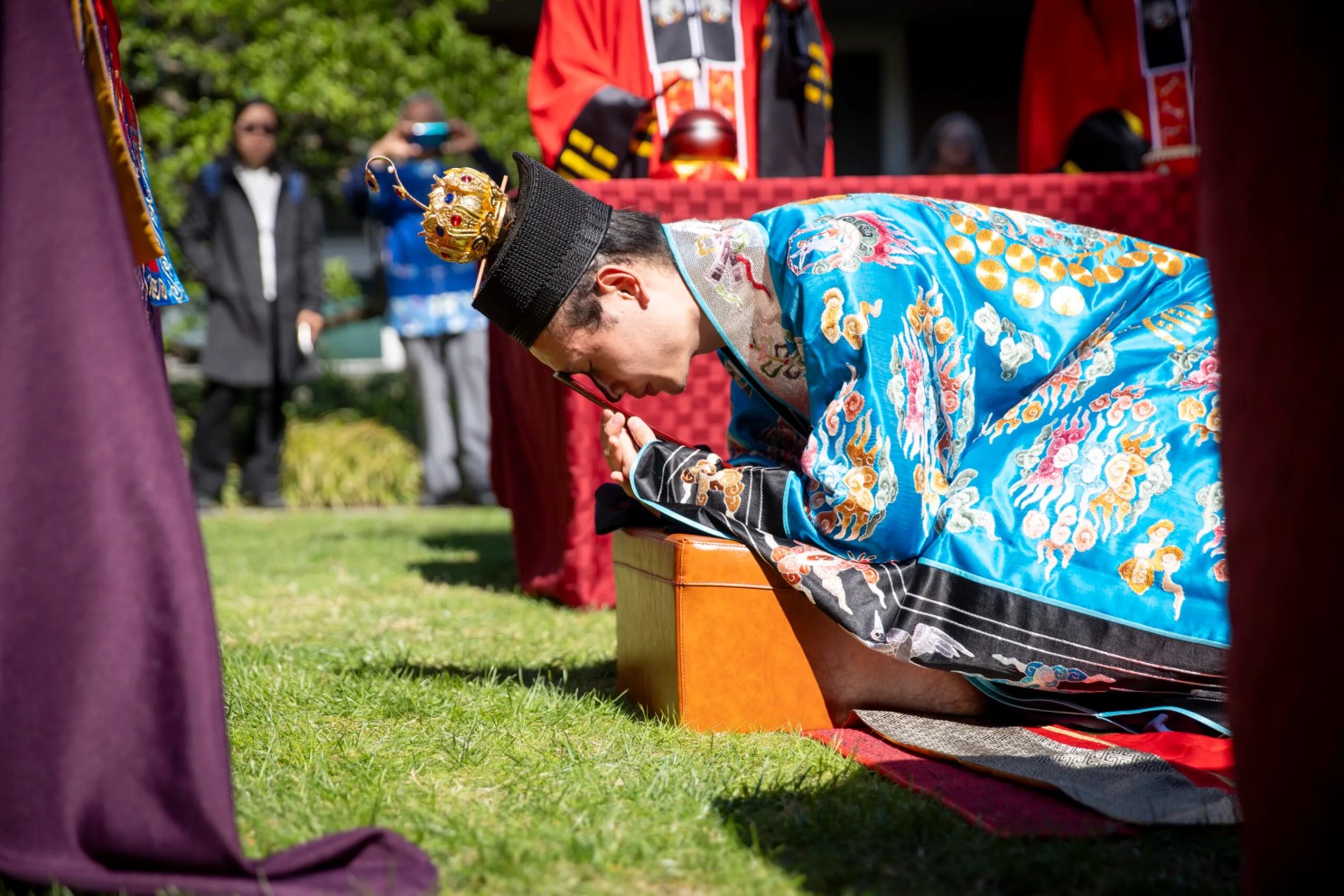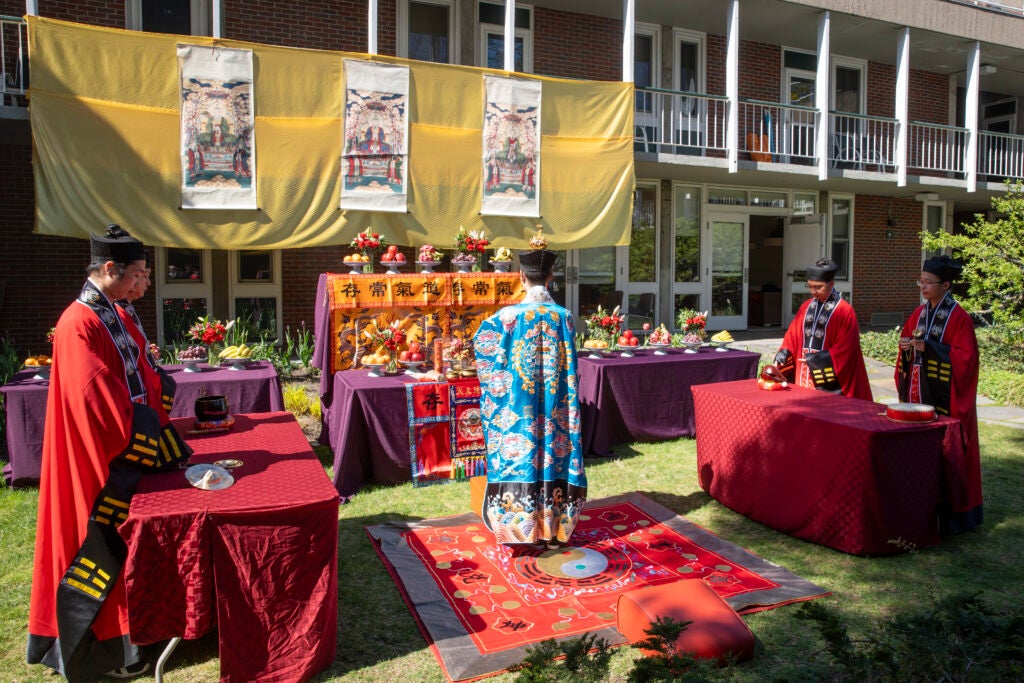Daoist ritual, hosted by Harvard Asia Center, marked campus first

During a recent conference, five Daoist priests performed a ritual outside Harvard Divinity School.
Photos by Niles Singer/Harvard Staff Photographer
Peace in the world. Contentment among all people. Abundant harvests.
In a one-hour ceremony, set in the courtyard outside the Divinity School’s Center for the Study of World Religions, these petitions were formally submitted to the three highest deities of the Daoist religion.
“I thought it was fitting, given what’s going on in the world, and perhaps even historic for Harvard,” offered James Robson, James C. Kralik and Yunli Lou Professor in East Asian Languages and Civilizations and Victor and William Fung Director of the Harvard Asia Center.
The ritual was performed by five vibrantly attired priests, with the proceedings capping off a recent academic conference on Daoism hosted by the Asia Center. Robson, an expert on medieval Chinese Daoism and Buddhism who joined the faculty in 2008, has no knowledge of previous Daoist rituals at Harvard. An archival search suggests it was a campus first.
Leading scholars on Daoism from the U.S., Japan, and Singapore were drawn to the April 25-26 conference. But Robson, with special assistance from Asia Center Associate Venerable Yifa, invited contributions from Daoist practitioners as well. The five priests, all hailing from temples in the Fujian and Zhejiang provinces of China, spent the first day gathering up fruit and flower offerings and constructing an altar.
On Friday afternoon, the group embarked upon an abbreviated “Audience Rite for the Three Pure Ones,” traditionally marking the birthdays of the three most revered deities in the Daoist pantheon. Ritual materials included incense, bells, an elaborately embroidered prayer mat, and paintings of the Three Pure Ones. About 50 people looked on as the priests bowed, prayed, and sang.
“The main ritual officiant — called the Master of High Merit — initiates a meditative visualization practice,” explained Robson, who is also incoming director of the Harvard-Yenching Institute. “He goes on a voyage to the celestial domain, where before the Three Pure Ones he submits petitions on behalf of those living in this world.”
For Robson, watching the immersive ritual helped fan the sparks of a longer-term dream. “There are many centers for Buddhist studies at major universities all around the country,” he shared. “But there has never been a center for Daoist studies at any university in the United States. We’re hoping this might be an opportune time to explore the possibilities of establishing one.”





